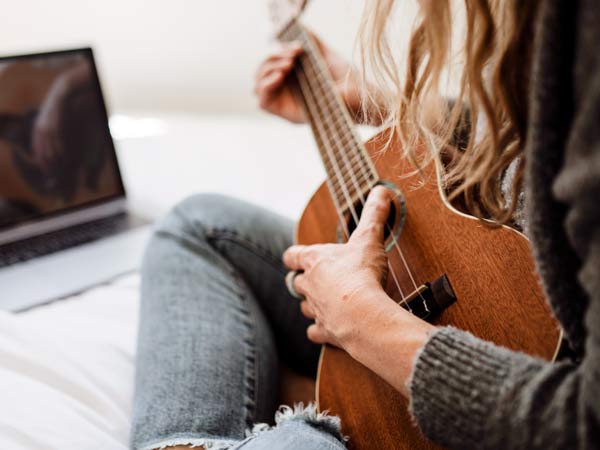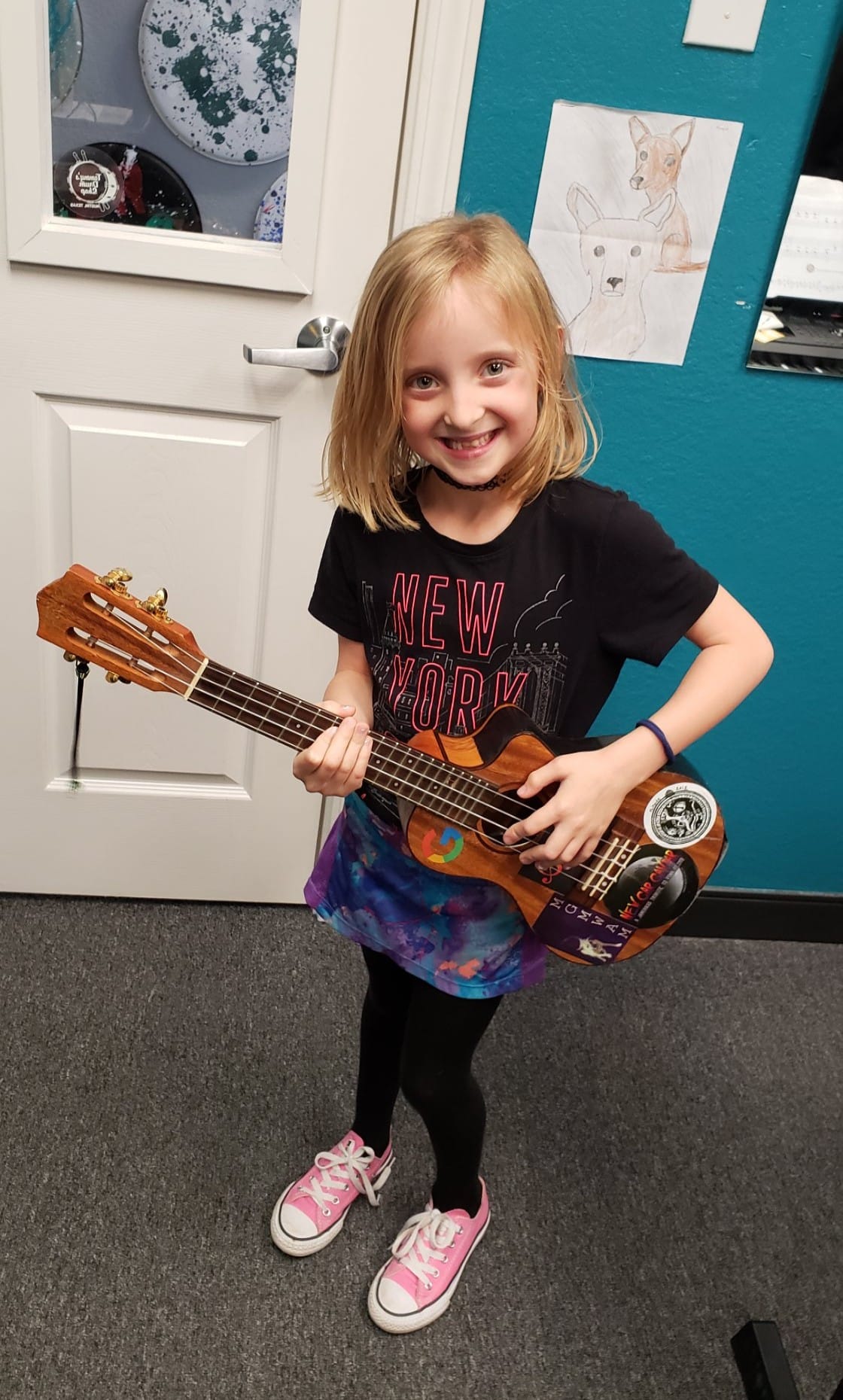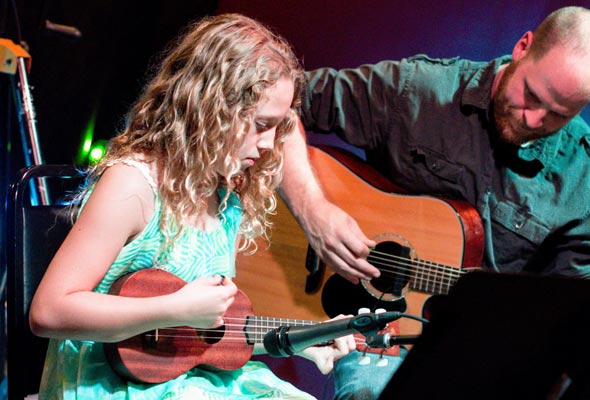


The ukulele is a wonderful, and often overlooked, little instrument! Its sound can’t help but make you feel like you’re on a tropical beach, and its small size and soft strings make it a super-easy intro to stringed instruments. With only four strings, the chord shapes are simple enough for the smallest hands to master, and the softer material of the strings make it a great choice for seniors who want a string instrument that’s easy on aching joints or hands. In addition, the small size and of the ukulele makes it a breeze to toss in your car and take with you absolutely everywhere!
It’s cost-efficient too, as good ukuleles aren’t terribly expensive, and you’ll find simplified versions of songs with chords for ukulele all over the internet. Once you learn a few basic chords, you’ll be thrilled at the musical library already at your fingertips! As with all instruments, though, don’t go for the absolute cheapest thing you can find. A $20 ukulele is most likely not going to stay in tune or be pleasant on the ears, but $50 will buy you an instrument that will be fun and rewarding to play for years. (Some good brands include Kala, Lanikai, Mahalo, Luna, and Oscar Schmidt, but it’s a good idea to talk to a salesperson or read online reviews before you buy.)
The ukulele can be a great intro to other stringed instruments, like guitar or bass, and the skills you learn through playing ukulele will transfer to those future instruments. But if you already know for an absolute fact that you plan to transition to guitar, we actually recommend just starting with a small guitar rather than ukulele, because the chords on ukulele are different, and when you add those extra guitar strings later, you’ll have a few things to learn all over again.
Ukulele is one of the easiest instruments out there for anyone to just pick up and play, regardless of size, age, musical knowledge, or budget.
Ukuleles come in different sizes: soprano (smallest), concert (standard size), tenor (larger), and baritone (largest). The baritone ukulele is actually tuned differently from the others, in that it’s tuned like a guitar, but just missing the two bottom strings. The smaller the ukulele, the higher-pitched it will sound, so those wanting a richer sound than the standard might lean towards a tenor ukulele. The soprano ukulele is cute, but super small, so we don’t actually recommend it. Even tiny hands can handle a concert-sized ukulele, and that’s going to produce the sound most commonly associated with a uke.
Like acoustic guitars, there’s also such a thing as an acoustic-electric ukulele, which is a uke that can be played on its own without an amp, or can also be plugged in when amplification is needed. We recommend this for anyone who plans to use their uke on stage in a band or talent show setting, so it doesn’t get drowned out by the other instruments. And did you know there’s such a thing as a ukulele bass (known as a U-bass)? It’s a little bigger than a tenor ukulele, with thick rubber strings. It’s tuned like a standard four-string bass, and needs to be plugged into an amp just like a regular bass guitar. If this interests you, be sure to check one out at a local music shop to see how it feels!

Phone: 830-326-9600 (We love texts!)
Email: staff@senseandcolor.com
Hours vary depending on lesson schedules.
Sense & Color School of Music
660 S. Bagdad Rd. #410
Leander, TX 78641
Visits by appointment only, please.
